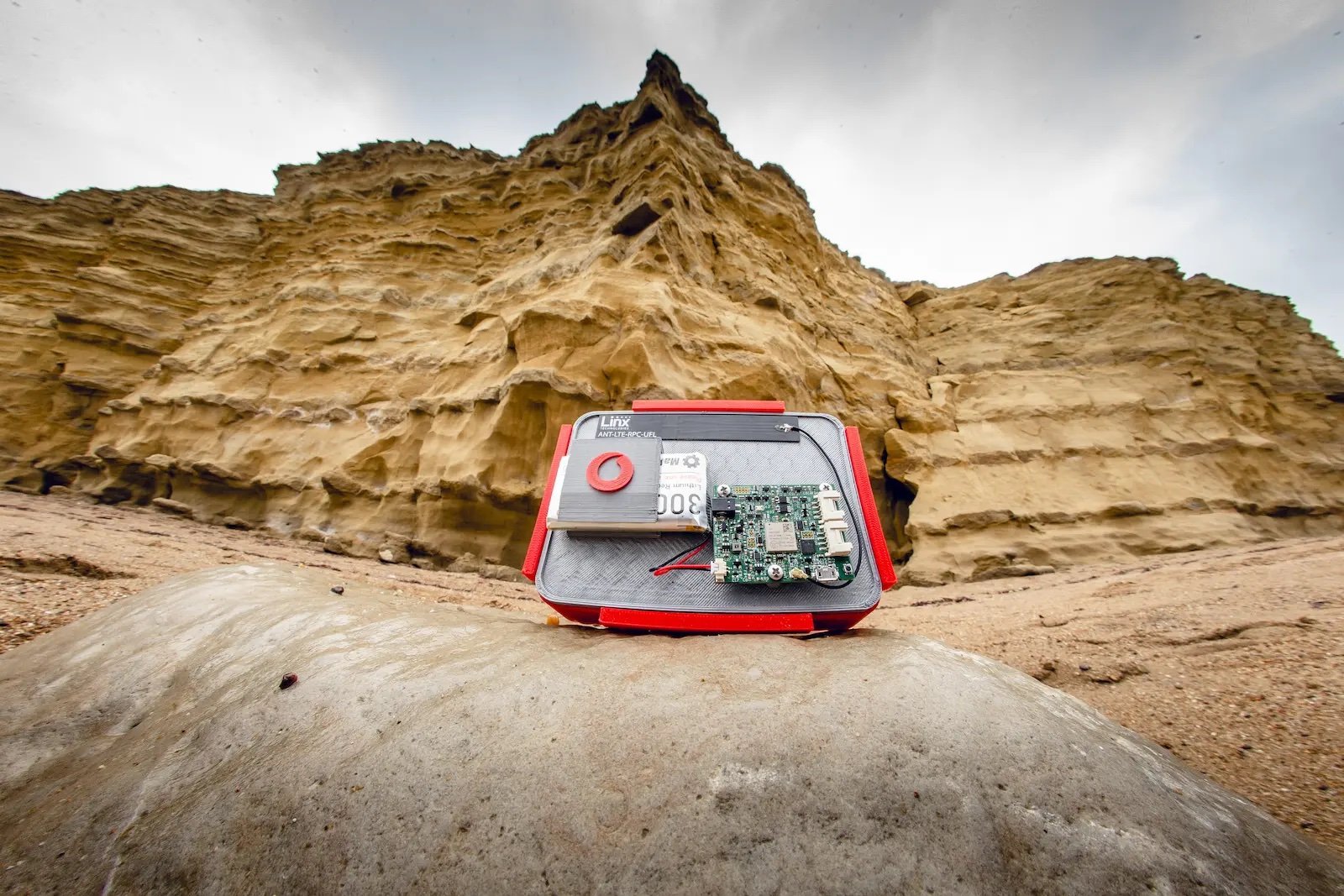
Vodafone is deploying sensors on its Narrowband Internet of Things (NB-IoT) network to monitor cliffs and detect coastal landslides.
A universal prototype device created by Vodafone can house different sensors for a variety of use cases and is designed to help businesses, local authorities, and academics to adopt smarter approaches to monitoring environmental and public safety issues.
Johan Wibergh, Chief Technology Officer at Vodafone, commented:
“The global reach of our digital networks and technologies has a key role in addressing climate change, from monitoring the health of forests to re-establishing connectivity following flash floods. Now, we are turning our attention to the very real threat of coastal erosion.”
Vodafone, 5G RuralDorset, the British Geological Survey (BGS), Bournemouth University, Neutral Networks, and Dorset Council have formed a partnership to develop a monitoring system to manage coastal hazards.
Using the universal device from Vodafone, data is collected using sensors developed by Bournemouth University. Collected data includes ground movement, groundwater changes, and environmental factors such as ground temperature.
Dr. Marios Angelopoulos, Associate Professor at Bournemouth University, said:
“We are excited to work on this multi-disciplinary project as it gives our university the opportunity to synergise with industry in developing and trialling innovative 5G technologies to the benefit of our region with positive social and economic impact.”
This data is processed and analysed in the cloud using an AI/ML system and the results are used by BGS experts to keep track of potential issues and seek action where necessary.
Catherine Pennington, Engineering Geologist and Landslide Specialist at BGS, commented:
“As sea levels rise, we are likely to see an increase in landslide activity at the coast. We are excited to work on this multi-disciplinary project which will enable us to develop and trial new technologies in order to better understand the driving processes, helping rural areas to build resilience so that we can adapt to these changes.”
The Dorset and East Devon Coastline – known as the Jurassic Coast – spans 155km and is celebrating its 20th anniversary as a UNESCO-designated World Heritage site. However, this year alone has bore witness to five cliff movements including a landslide in April which saw more than 4,000 tonnes of rubble tumble from the cliff face.
Peter Wharf, Dorset Council Deputy Leader, added:
“Cliff failures are a very dangerous problem not only in Dorset but other coastal regions which see huge numbers of visitors every year.
This research, along with the coastal public safety trials, is critical to people’s safety and the long-term prosperity of the area. Current monitoring methodologies are also very costly for the council and this new technology will hopefully provide significant savings in future.”
Vodafone says the sensors can connect to its NB-IoT network across 21 European countries, meaning that large stretches of the EU’s 68,000km coastline could also benefit from the technology.

Find out more about Digital Transformation Week North America, taking place on November 9-10 2021, a virtual event and conference exploring advanced DTX strategies for a ‘digital everything’ world.





